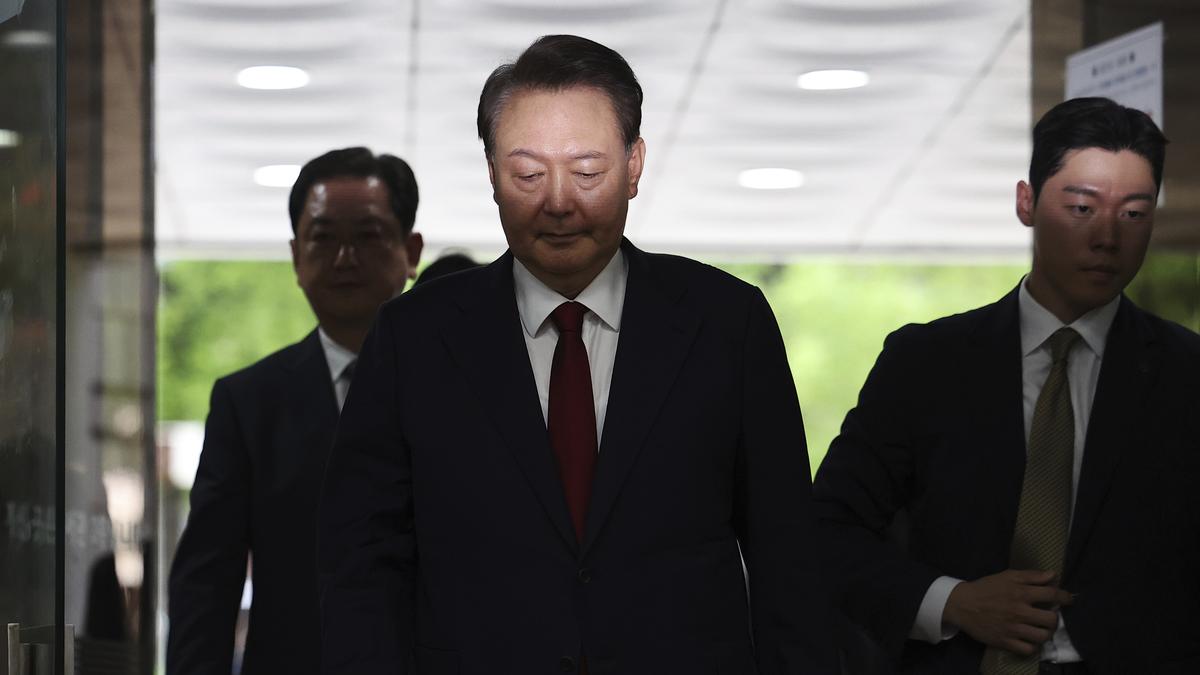South Korea’s political landscape was rocked as disgraced former President Yoon Suk Yeol made a dramatic appearance in court. The once-powerful leader, ousted in April following a storm of controversy, stood at the center of a legal storm. The air was thick with tension as Mr. Yoon arrived in a sleek black van, flanked by his legal team, his countenance giving away little as he strode into the hallowed halls of the Seoul court.
The charges against Mr. Yoon were weighty, stemming from his imposition of martial law in a bid to consolidate power in December. The special prosecutor leading the case, Cho Eun-suk, spearheaded the efforts to bring the former president to justice. The allegations against Mr. Yoon painted a picture of a leader willing to trample on democratic norms to maintain his grip on power.
His authoritarian push was not just about asserting authority but about silencing dissent and subverting democratic processes.
As the courtroom drama unfolded, Mr. Yoon’s defense team vehemently opposed the arrest request, labeling it as excessive and lacking in substance. The legal battle waged on, with the fate of the ex-president hanging in the balance. The court’s decision on the arrest warrant loomed large, with the outcome expected to send shockwaves through the political establishment.
The backdrop to Mr. Yoon’s downfall was a series of controversial decisions that plunged the country into chaos. His decree to impose martial law on December 3 sent shockwaves through the nation, sparking a showdown between the executive and legislative branches of government. The swift reversal of his edict, following a dramatic session at the National Assembly, marked the beginning of the end for Mr. Yoon’s presidency.
The charges leveled against Mr. Yoon were grave, carrying the weight of possible death penalty or life imprisonment. The accusations of masterminding a rebellion and subverting the pillars of democracy painted a damning picture of a leader gone rogue.
The allegations of abuse of power, falsifying documents, and obstructing official duties underscored the extent of the former president’s transgressions.
Amidst the legal turmoil, a new chapter in South Korea’s political saga unfolded with the election of Lee Jae Myung as Mr. Yoon’s successor. The mandate given to Mr. Lee to investigate the martial law debacle and other alleged wrongdoings signaled a turning point in the nation’s quest for justice and accountability.
As the courtroom drama played out, South Korea stood at a crossroads, grappling with the fallout of Mr. Yoon’s actions and the implications for its democratic institutions. The echoes of his authoritarian rule reverberated through the halls of power, serving as a stark reminder of the fragility of democracy in the face of unchecked power.
The spectacle of a former president facing the prospect of imprisonment sent shockwaves through the political establishment, raising questions about accountability, the rule of law, and the resilience of democratic norms. The outcome of the legal proceedings would not just determine Mr. Yoon’s fate but would also shape the future trajectory of South Korea’s democracy.
In the corridors of power and the streets of Seoul, the shadows of Mr. Yoon’s presidency lingered, a cautionary tale of the dangers of unchecked power and the imperative of upholding the principles of democracy. As the nation awaited the court’s decision, the specter of Mr. Yoon’s actions cast a long shadow over South Korea, a stark reminder of the fragility of democracy and the enduring struggle to safeguard its institutions.

